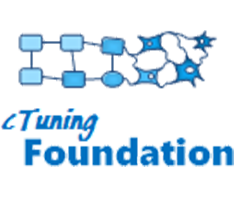Quantum computers have the potential to solve certain problems dramatically faster than conventional computers, with applications in areas such as machine learning, drug discovery, materials, optimization, finance and cryptography.
It is not known yet when the first demonstration of quantum advantage will be achieved, or what shape it will take, but even when that happens one thing is certain: to make scalable quantum computing a reality, we must enable effective aggregation and sharing of multidisciplinary knowledge.
Together with a growing community of quantum computing experts and enthusiasts, we are building Quantum Collective Knowledge (QCK) to pinpoint the state-of-the-art and forecast future developments in quantum computing.
In contrast with other initiatives, QCK uses unified workflows with reusable components which can run on classical and quantum platforms, can be extended by the community, and are connected to a public dashboard to simplify reproducibility and comparison of different algorithms across different platforms! We hope that QCK will be instrumental to unlock the power of quantum computing for everyone!
If you would like to discuss collaboration opportunities or join our dedicated QCK Slack channel, please drop us a message.
QCK Challenges
1st Open QCK Challenge
We are thrilled to launch the 1st Open QCK Challenge! We gratefully acknowledge support from IBM, Rigetti and Innovate UK in preparing and running the challenge.
QCK Hackathons
4th QCK Hackathon, Oxford, 15 March 2019
We organized our fourth QCK hackathon in Oxford, with support from IBM, NQIT and the Satellite Applications Catapult. Participants travelled as far as from the south of France and the south of Scotland. In fact, we had at least one participant from each of the previous hackathons! One of the teams appeared to find a solution in negative time (but later admitted it could be explained more trivially than reversing time using a quantum computer).
3rd QCK Hackathon, Paris, 27 January 2019
We organized our third QCK hackathon at School 42 in Paris, which was also the very first quantum hackathon to be held in France! Over 80 participants, ranging from undergraduate and graduate students to startup founders to experienced professionals from IBM and CERN, worked together to solve a brand new set of problems in Quantum Machine Learning!
2nd QCK Hackathon, London, 6 October 2018
We organized our second QCK hackathon in London, UK. Over 40 participants collaborated in teams to solve a quantum chemistry problem, and for the day were given priority access to IBM Quantum Experience machines, including a 16-bit quantum computer. Thanks to QCK, the participants had the opportunity to build upon the knowledge gained from the first hackathon and view experimental results on a live dashboard.
Some participants commented after the event:
- "My first hackathon! really great day! I loved it, learned a lot, good mix of people, good interaction, helpdesk, well facilitated. thank you very much!!!"
- "That was a unique and brilliant hackathon; a gateway to further QC for more people. :)"
- "Great day. Really interesting talks, hands-on coding and great opportunity to talk to people with similar interests. I came away feeling that I'd learned a lot."
1st QCK Hackathon, Cambridge, 15 June 2018
We held our first QCK hackathon in Cambridge, UK. (Also, to the best of our knowledge, this was the first quantum hackathon in Western Europe!) Over 20 keen quantum programmers were given exclusive cloud access to Rigetti's 8-qubit Agave quantum computer and simulator. We had participants with various backgrounds, ranging from secondary school students to PhD students and experienced professionals, most of whom had no prior experience programming quantum computers.







